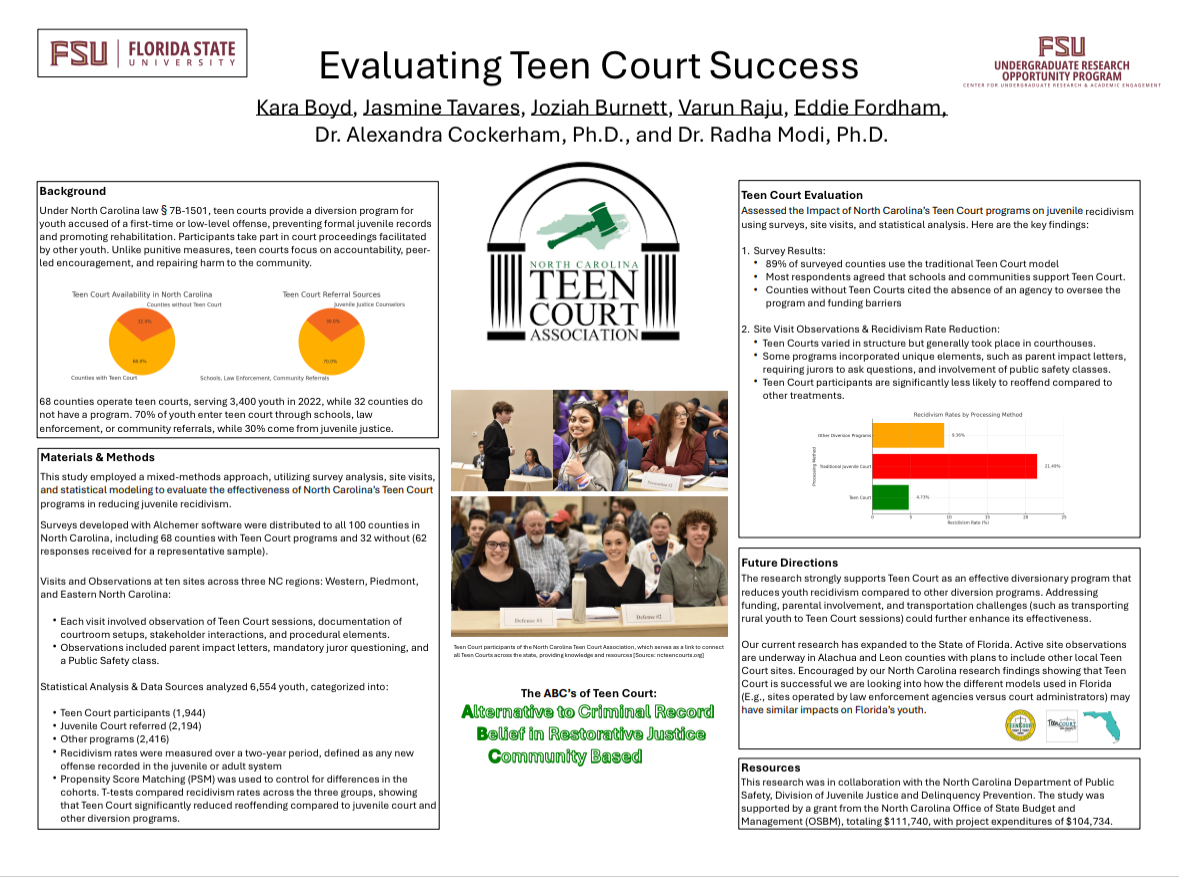Research Symposium
25th annual Undergraduate Research Symposium, April 1, 2025
Karaline Boyd Poster Session 4: 3:00 pm - 4:00 pm/ Poster #106

BIO
Kara Boyd is a freshman at Florida State University from Pensacola, Florida. After graduation, she plans to attend law school, then pursue a career in either criminal or sports law. She is involved in Phi Alpha Delta - a professional pre-law fraternity, the UROP program, intramural volleyball and soccer, the GPS peer instructor program, and the Honors Program at FSU. She has worked at Publix supermarkets for 4 years, and hopes to use the leadership, discipline, and team building skills gained there in future internships and workplaces. Being involved in the UROP program has enabled her to gain valuable experience as a researcher and allowed her to continue developing a love for the courtroom.
Evaluating Teen Court Success
Authors: Karaline Boyd, Alexandra CockerhamStudent Major: Majoring in Psychology and Philsophy with minors in Criminology and Political Science
Mentor: Alexandra Cockerham
Mentor's Department: Department of Political Science Mentor's College: Interdisciplinary Social Science Co-Presenters: Eddie Fordham
Abstract
Introduction:
Teen Court programs are used to divert youth from traditional criminal legal system processes, aiming to reduce recidivism and provide peer-led interventions for youth. This study evaluates the impact of North Carolina's Teen Court system on juvenile recidivism compared to traditional court processing and other diversion programs.
What we did:
We conducted a mixed-methods study incorporating surveys, site visits, and statistical analysis to assess the structure, effectiveness, and impact of Teen Court programs.
Why we did it:
Understanding Teen Court's effectiveness informs policy decisions and improves juvenile justice interventions by emphasizing peer-led encouragement over punitive measures.
How we did it:
We conducted a statewide survey of 100 counties, observational site visits to 10 Teen Court sessions, and a quantitative analysis of recidivism rates to compare Teen Court participants with similarly situated youth in traditional court or other diversion programs.
Results or Expected Outcomes:
Preliminary findings indicate significantly lower recidivism rates among Teen Court participants than those processed through traditional juvenile court. Findings emphasize the role of peer accountability, community support, and structured diversion in reducing youth reoffending.
Conclusion:
This study highlights the benefits of Teen Court programs in reducing recidivism and promoting positive youth outcomes. Findings support expanding Teen Court initiatives across jurisdictions.
Keywords: restorative justice, teen court, recidivism

